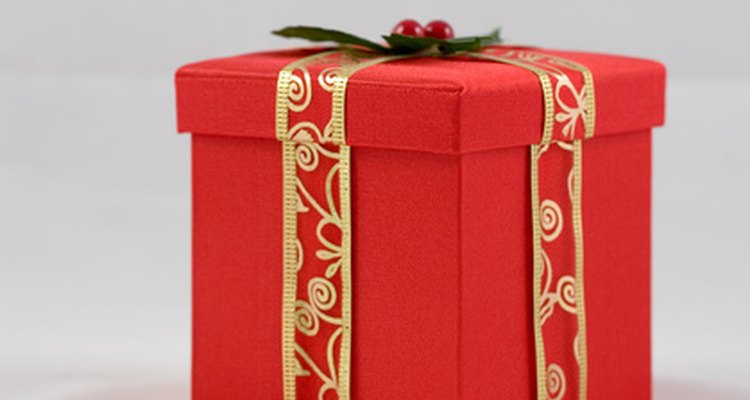
The Chinese employ strict etiquette for gifts. When to give gifts and when to reciprocate are well defined. So is the number of things in gifts: The numbers six and eight is considered lucky, as are all even numbers; but the number seven brings bad lucky, as all odd numbers do. Four is an unlucky number in southern China, as it sounds like "death". Gifts containing a series of six or eight (contains 66 or 88 of something) are extra lucky.
Gifts for Business Contacts
Give a business contact a present after a successful negotiation. Such presents include cognac, whisky, wine, tea, or Chinese food. The packaging, brand, and presentation is important. Something associated with your hometown or state is always appreciated, as are gifts branded with your company logo. Give the present to the head of the business but explain it is intended for all of the employees. Point out that the gift is from your company to theirs as a token of friendship. Host a banquet for business associates. Chinese like a good meal, and good restaurants abound in Chinese cities. Choose one that reflects the importance of the business relationship.
Gifts for Private Friends
Things associated with your hometown or state, especially if it has a story, make good gifts. Chinese appreciate alcoholic drinks even if they do not drink much. Wine is a suitable gift, especially if you can tell a story about the vineyard. Western foods can be tricky, both bringing into China and giving. Cheese is something the Chinese do not typically like. Give food associated with long life in Chinese traditional medicine, such as Chinese black mushrooms.The type of gift for a friend depends on the occasion. When meeting a newborn baby the first time, a jade or silver bracelet is the traditional gift. However, you can explain the western custom of giving a spoon to a baby since it has a story. Older people are often given practical things, like walking sticks.
If the visit is casual, bring fruit, cakes, chocolate or similar treats.
When trying to build a relationship with a family, such as propsective in-laws, purchase a more expensive, practical gift. . Fine porcelain works, along something personal, like pictures of relatives in nice frames.
Giving the Gift
When handing over the gift, express that it is only a small thing, nothing remarkable. Do not be surprised if the Chinese counterpart refuses it; they will expect you to insist on giving it. Present the gift with both hands.
Carefully consider the wrappings you use. The wrapping reflects the quality of the gift. Red represents a lucky color, white indicates sorrow, and yellow parcels with black text, and dark packages. personify death.
Chinese reciprocate when they have been given gifts, so expect to receive something the next time you meet them.
Gifts to Avoid
Knives, scissors, and the like are inappropriate because the Chinese believe they will sever the relationship.
Chrysanthemums is a flower only given to the dead. Even though pretty, do not give them to a prospective girlfriend, or any business contact. Potted plants are more appreciated than cut flowers, as a living plant symbolizes a growing relationship. Straw sandals are worn at funerals, as are white clothes, and clocks are associated with death because they mark the passage of time. Handkerchiefs and umbrellas also represent death. In southern China, the word "book" sounds similar to the word "death," so avoid giving books as gifts.
Related Articles
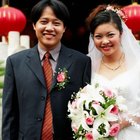
Chinese Wedding Anniversary Gifts

How Much Cash Do You Give for a ...
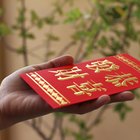
What Is an Appropriate Gift for a ...
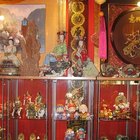
What Are Popular Chinese Gifts?
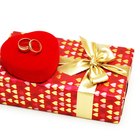
Traditional Chinese Wedding Gifts

How to Buy a Gift for an Ex-Boyfriend
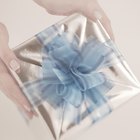
Etiquette of Gift-Giving When Not ...

Traditional Gifts for a 40th Wedding ...

What Is an Appropriate Gift After ...

Wedding Etiquette for a No Gifts ...

Why Do Guys Give Girls Flowers?

How to Tell a Friend What They Mean to ...

Wedding Gift Check Etiquette
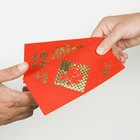
Traditional Chinese Housewarming Gifts
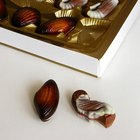
Customary Gifts & Western Gifts for ...

Valentine's Day Gifts for Male Friends

Etiquette for Late Wedding Presents

Etiquette for Giving a Check as a ...
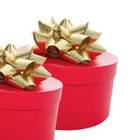
Traditional Chinese Welcoming Gifts
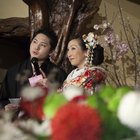
Traditional Japanese Wedding Gifts
References
Writer Bio
A former journalist and magazine editor since 1984, Johan Hjelm is now an independent writer. He has written 15 books, contributed to "Data Communications" and was editor-in-chief of "Nätvärlden." Hjelm has a certificate in journalism from Poppius School of Journalism, and has studied at Uppsala University in Sweden and the Massachusetts Institute of Technology.
Photo Credits
a gift image by Sandi Chetwynd from Fotolia.com